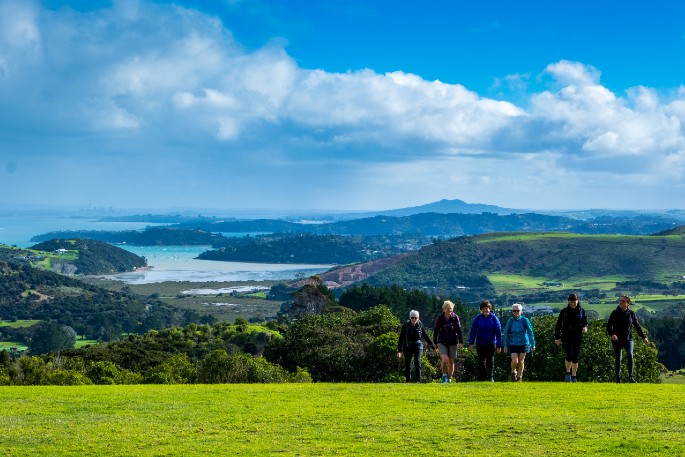This Content Is Only For Subscribers
Last Friday, September 27, was World Tourism Day. The UN World Tourism Organization has named the theme this year as “Tourism and Peace”.
Tourism Association Aotearoa chief executive Rebecca Ingram says the industry plays a key role in promoting understanding between people – whether through international experiences, or New Zealanders exploring what other parts of the country have to offer.
“This World Tourism Day recognises that while the economic value of tourism is most often cited – there are a wide variety of community and societal benefits that tourism fosters. Through travel we build understanding, and we grow as individuals,” Rebecca says.
“People in the tourism industry share, learn and exchange experiences and knowledge of different cultures, face-to face, every day.”
TIA has asked three very different tourism operators from across Aotearoa New Zealand – all finalists in this year’s Tourism Awards, being held in Auckland on November 6 –what they regard as most important when communicating across cultures.
Nadine ToeToe is the director of Kohutapu Lodge & Tribal Tours, a Māori owned, whanau business, based in Murupara in the Bay of Plenty. This internationally-lauded business offers visitors authentic, engaging, real life experiences, such as guided tours into historic sites, community visits, powhiri on to their marae, traditional kai, and interactive cultural workshops.
“When communicating across cultures, the most important consideration for me is to ensure we create genuine connections based on the international language of respect, love and empathy. By including our community, especially our youth and elders from our community, in our experience and stories we share, we not only provide visitors with an unforgettable experience, but also harness tourism to empower our youth and make positive change, Nadine says.
“This not only creates economic and social benefits for our people, but also provides a platform for showcasing our truthful history, our real life experiences, our culture and traditions. This approach helps strengthens our community, and enhances the social and tangible benefits of indigenous tourism for all, including our visitors.”
Gabrielle Young, director of Waiheke Island-based eco-tourism business Terra & Tide shared a similar perspective. Terra & Tide offers a range of touring, walking, sailing and wellness experiences, a short ferry ride from Aotearoa New Zealand’s largest city.
“Our two most important considerations are to demonstrate manaakitanga to our guests (which is showing respect, generosity and care to them) and to be totally authentic and passionate in our representation of our place and people, so they go away thinking that they have had an unforgettable experience.”
Dave Beeche, chief executive of RealNZ, says the effective communication came through giving the visitor an experience that was inspiring, unique and unforgettable. Operating in Rakiura Stewart Island, Piopiotahi Milford Sound, Pātea Doubtful Sound, Whakatipu Waimāori Queenstown, and Ōtautahi Christchurch, RealNZ offers a broad range of activities including water-based adventures, dining, and eco-experiences.
Since its founding in 1954 by conservation pioneers Les and Lady Olive Hutchins, RealNZ maintains a rich heritage of fostering appreciation for New Zealand’s natural places, while working to regenerate ecosystems and protect Aotearoa’s natural treasures for future generations.
“RealNZ’s purpose is to ‘Help the World Fall in Love with Conservation’, and we do this by inspiring and connecting guests with nature through delivering unique, authentic, and extraordinary experiences. Great maanakitanga is a key ingredient regardless of cultures,” Dave says.



